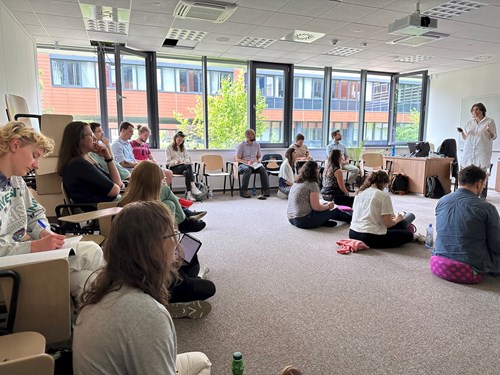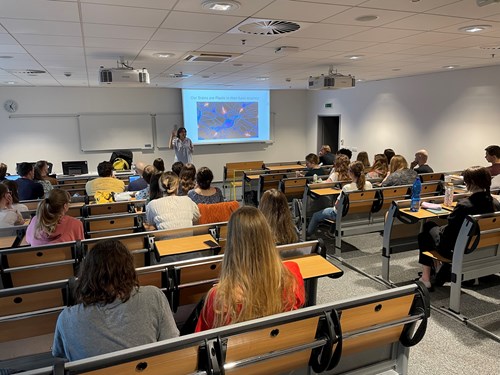Doc. Nava Levit-Binnun, Ph.D. and the organizers prepared two lectures. One was addressed to the students of MU Faculty of Medicine and the public and the following day there was a workshop for psychologists, psychiatrists and mindfulness teachers.
For students and the public a lecture was prepared with the topic of a new field of neuroscience, the so-called contemplative neuroscience. Associate Professor Levit-Binnun explained that our brains function as a predictive machine, evaluating each moment based on our previous experiences through so-called predictive maps. This discovery allows us to better understand how our brain forms ideas and assumptions about the world around us and how it influences us (often without us being aware of it) in our daily lives. During the discussion, we worked together to find the answer to whether these predictive maps can be changed. The results of many studies show that the human brain is plastic, and thus has the potential to update its outdated maps to make them more beneficial to our lives and overall mental well-being. An example for the helping professions, for example, is to strengthen their capacity for compassion through specific exercises as a way of effectively preventing empathy burnout. The lecture was attended by about 80 people, including Czech and foreign medical students, participants of mindfulness courses at the Faculty of Medicine of the Medical Faculty of MU and researchers. The great interest in this topic is evidenced by the hour-long discussion that followed the lecture.
At the workshop for therapists, the topics of neuroplasticity, epigenetics, and the microbiome were presented, which opened a series of neuroscientific paradigms relevant to the use of mindfulness in the care of our brain and mental health. Workshop participants learned how to motivate their clients in their mindfulness practice using insights from neuroscience and psychology. For example, she pointed out that we need 2 neurotransmitters in particular to develop brain plasticity - acetylcholine and norepinephrine, both of which are related to cultivating mindfulness through mindfulness practice.
The workshop was appreciated by certified mindfulness lecturer Michal Dvořák: "Personally, I liked the workshop very much. It was obvious that Nava knows a lot about mindfulness, both from the perspective of a scientist and a mindfulness teacher. I really liked how she connected how the brain works and what specifically about it affects the practice of mindfulness. It helped me understand even more what mindfulness can positively influence. I also really liked how Nava framed her ideas into different theories, which I found very integrative and helpful."








